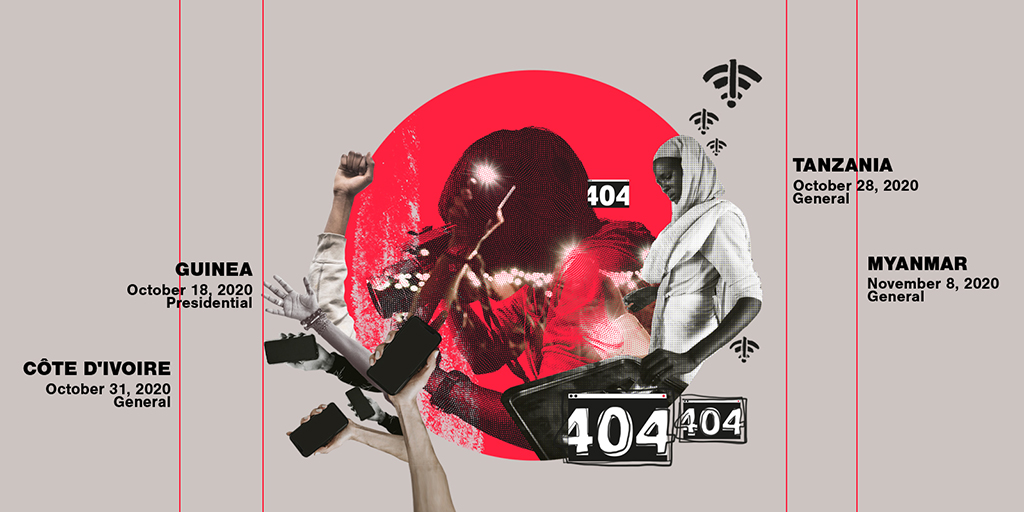Access Now supports this open letter published by Myanmar civil society organizations working on human rights, peace and federal democracy, and justice and accountability.
February 6, 2020
Dear mobile operators and internet service providers in Myanmar,
Right now, more than ever, the internet is integral to our survival. Without it we cannot stay connected with each other and the outside world, which heightens the risk for human rights violations against us.
Given this, we are writing with regards to your adherence to the shutdown of social media platforms. On February 3 2021, mobile operators, international gateways and internet service providers (ISPs) received a directive from the Ministry of Transport and Communications to block Facebook; on February 5 2021, an additional directive was received to block the social media platforms Twitter and Instagram.
These directives were given by an illegitimate authority body — by engaging in an illegal, unconstitutional seizure of power, the military does not have the right to be recognized as the governing body of Myanmar. By complying with their directives, your companies are essentially legitimizing the military’s authority, despite international condemnation of this very body.
Further, the rights to freedom of expression and information are protected under general international human rights law. As evidenced in Article 19 of the International Covenant on Civil and Political Rights, any restrictions to freedom of expression must be necessary and proportionate to achieving a legitimate aim. [1] With COVID restrictions and ongoing security risks in the country, the people of Myanmar rely on social media platforms to share their voices with each other and the world. The blocking of social media platforms with the intent to silence Myanmar people’s dissent cannot be perceived as a legitimate aim.
We call for mobile operators and ISPs to take every action available to appeal the recent junta directives. Telenor has stated that the directive has legal basis under the Myanmar Telecommunications Law but this is questionable. Section 77 of the Telecommunications Law authorizes the Ministry of Transport and Communication (MOTC) in case an “emergency situation arises to operate for the public interest,” to direct a telecommunications licensee to suspend a service or “intercept or not to operate any specific form of communication.” According to the International Commission of Jurists, Section 77 is incompatible with international human rights law and standards on freedom of expression and information, which in turn brings into question the validity of the MOTC order. [2]
Additionally, we understand that telecom operators are required to report on requests for personal user data. We would like assurance that your companies are only disclosing information related to life-or-death situations. Facilitating the military’s surveillance of activists and journalists puts them at severe risk.
Finally, we would like to remind all operators that under the UN Guiding Principles of Business and Human Rights, you have a duty to not enable or contribute to potential human rights violations. Shutting down an important means for the nation to communicate with one another and bear witness is part of the military’s strategy to illegally retain power, and would thereby allow for potential human rights violations to take place with impunity. To uphold your duty:
- Mobile operators and ISPs must prevent the military from accessing user data.
- Mobile operators and ISPs must take every action available to appeal the recent junta directives.
- Mobile operators and ISPs must develop plans in the event the human rights situation in Myanmar deteriorates.
Your services and actions are needed by the people now more than ever.
Regards,
Myanmar Civil Society Organizations working on: Human Rights, Peace and Federal Democracy, Justice and Accountability
[1] UN Human Rights Committee, CCPR/C/GC/34, General Comment no. 34: Article 19: Freedoms of opinion
and expression (2011)
[2] International Commission of Jurists, “Dictating the Internet: Curtailing Free Expression, Opinion and Information Online in Southeast Asia” (2019), pp. 140-141, 149-150 (The lack of independent judicial
oversight of authorities tasked to enforce these powers is also a problem); Myanmar: Legal Memorandum on Ministry of Transport and Communications Order to Block Access to Specific Websites
